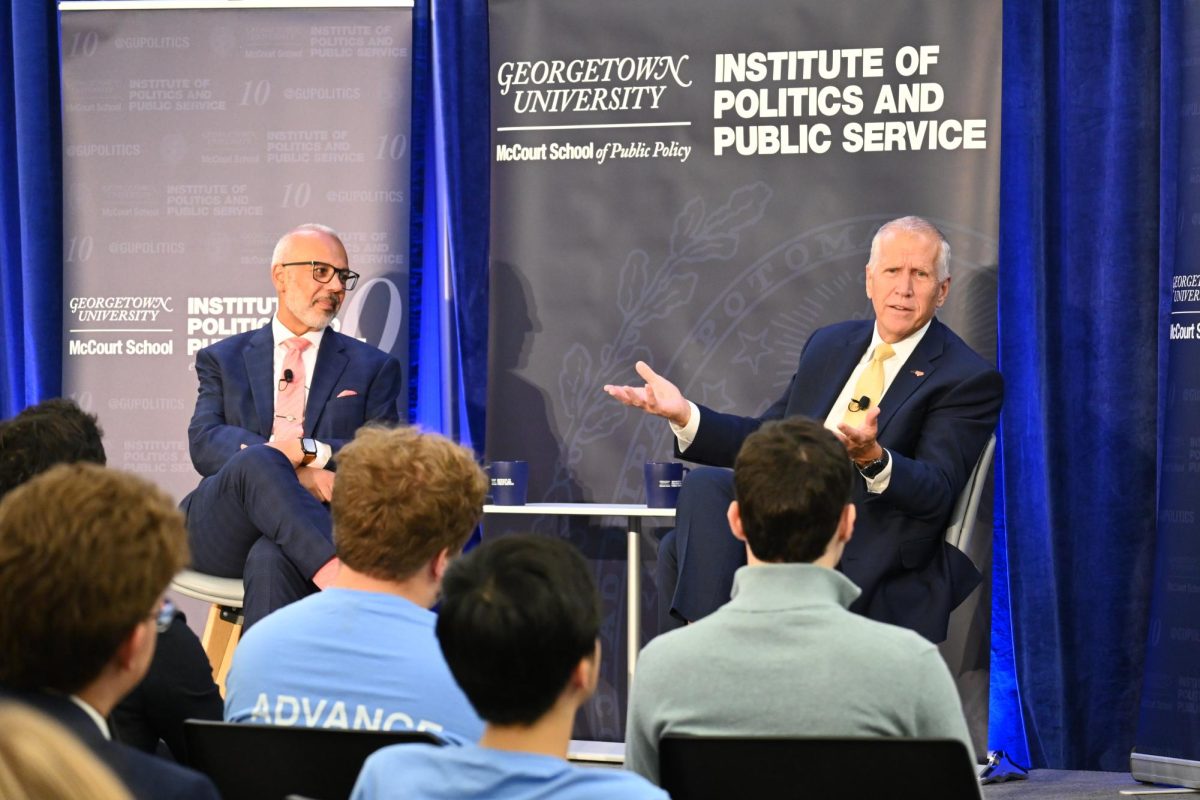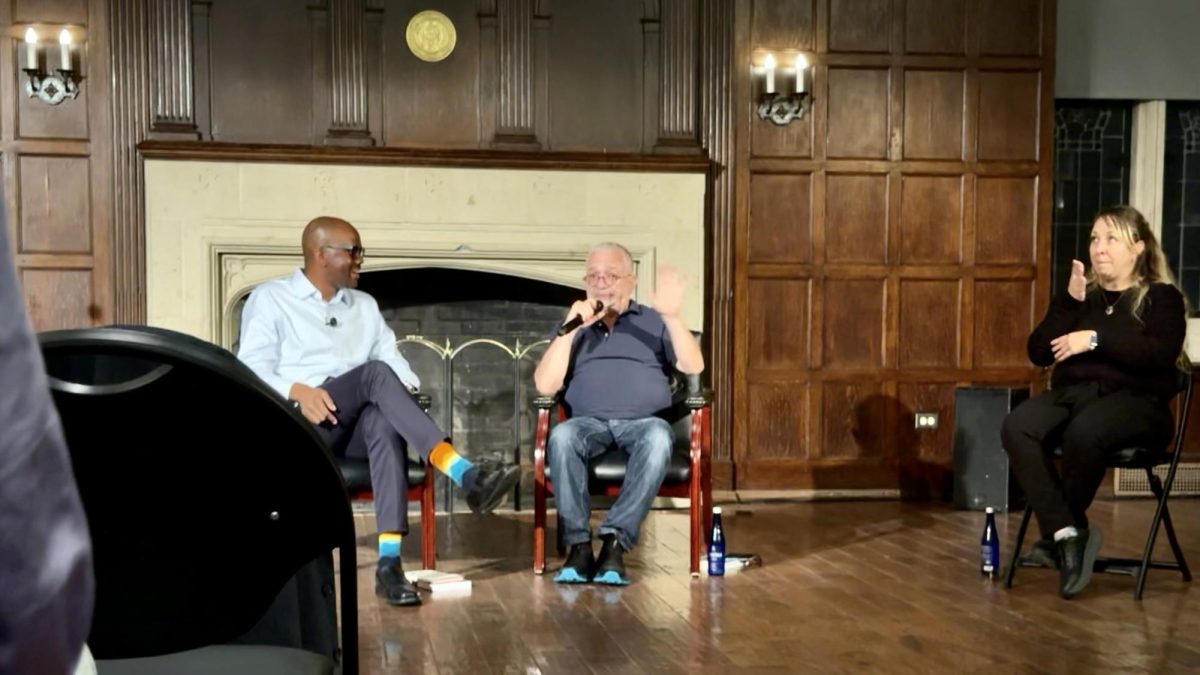An expert on national security and the Middle East, Shira Efron, addressed the Israeli government’s strategy and ethics within the Israel-Hamas war and the need for a ceasefire in Gaza at a Sept. 10 event.
At the event, Efron, the director of research at the Israeli Policy Forum, an American-Jewish association that advocates for a two-state solution, spoke with Jonathan Lincoln, the director of the Georgetown University Center for Jewish Civilization (CJC), which hosted the event. During the panel, Efron discussed the Israeli military’s approach to the war in Gaza and speculated on potential endings to the continued warfare and humanitarian crisis.
After Hamas’ Oct. 7 attacks against Israel, which killed over 1,100 Israelis — largely civilians — Israel responded with force, invading Gaza and killing more than 40,000 Palestinians, according to Gaza’s Health Ministry. The war’s brutality has sparked ongoing antiwar protests in Israel which call on Israeli Prime Minister Benjamin Netanyahu to end the war and end the violence against civilians.
Efron said that Israel’s approach to the Gaza conflict reflects intelligence and operational failures by the Israel Defense Force (IDF).
“We can go back to the terrible Israeli idea of managing the conflict. They’re not trying to solve it,” Efron said at the event. “There was a tremendous, crazy intelligence failure to get to this point.”
Efron added that the IDF’s informational shortcomings have resulted in an abundance of lost opportunities to rescue hostages, including six hostages the Israeli military found dead in Gaza Aug. 30.
“We for sure missed many opportunities to bring them home,” Efron said.
Since the war began, Israel has faced growing international isolation: many key allies, with the exception of the United States, have withdrawn support from Israel, with Turkey halting trade with Israel, growing pressure from the European Union (EU) for Israeli troop withdrawal from Gaza and Saudi Arabia informing U.S. officials that it will not hold a civil relationship with Israel unless Israel recognizes Palestinian sovereignty.

(Kate Hwang)
Efron said that the Israel-Hamas war has sparked a realization among Israelis that their international allies do not hold legal obligations to support Israeli military efforts.
“The Saudis were supposed to come. Well, guess what? No one’s coming. There’s no Saudi agreement,” Efron said. “The relationships with the countries that Israel has peace agreements with — with Egypt, with Jordan — you know, everything is slowing down. We’re on the verge of essentially breaking the peace agreement with Egypt rather than Jordan.”
Efron added that the lack of international ally support for Israel is a growing concern among Israeli citizens.
“The resilience that characterizes Israel is almost absent,” Efron said. “So gradually, Israel is more isolated. So that’s why it’s so concerning that if we’re not going to a ceasefire that maybe we will not solve these problems.”
Efron said that, alongside Israel’s increasing isolation, the international community worries for the ongoing nuclear threat Iran poses to Israel. Iran has condemned Western countries’ ongoing military and financial support for Israel and threatened to attack Israel in the past.
“There have been advancements on the nuclear file in Iran. They’re very, very concerning,” Efron said. “There’s the enrichment that everyone’s talking about and the weaponization of nuclears, and on the weaponization file, which was the slower one, we are seeing more and more advancement.”
“I’m hearing people say this could be an existential threat for Israel,” Efron added.
Efron described potential future scenarios for the war from a full-scale escalation to a continued attritional conflict, highlighting that the current attritional war was the best-case scenario at present, despite the high civilian death toll in Palestine.
“The best scenario is that we continue the low grinding attrition war that we have now, which is not really good, right? The fear is that there’s going to be a tension to continue with the attrition war, but at a higher pace and higher intensity.”
Efron added that the high death toll lends credence to calls for an end to the war in Gaza.
“People are losing their businesses, losing their families, you can’t survive,” Efron said. “So I think there’s more of this discussion of, ‘To what end can we continue to do this?’”



















